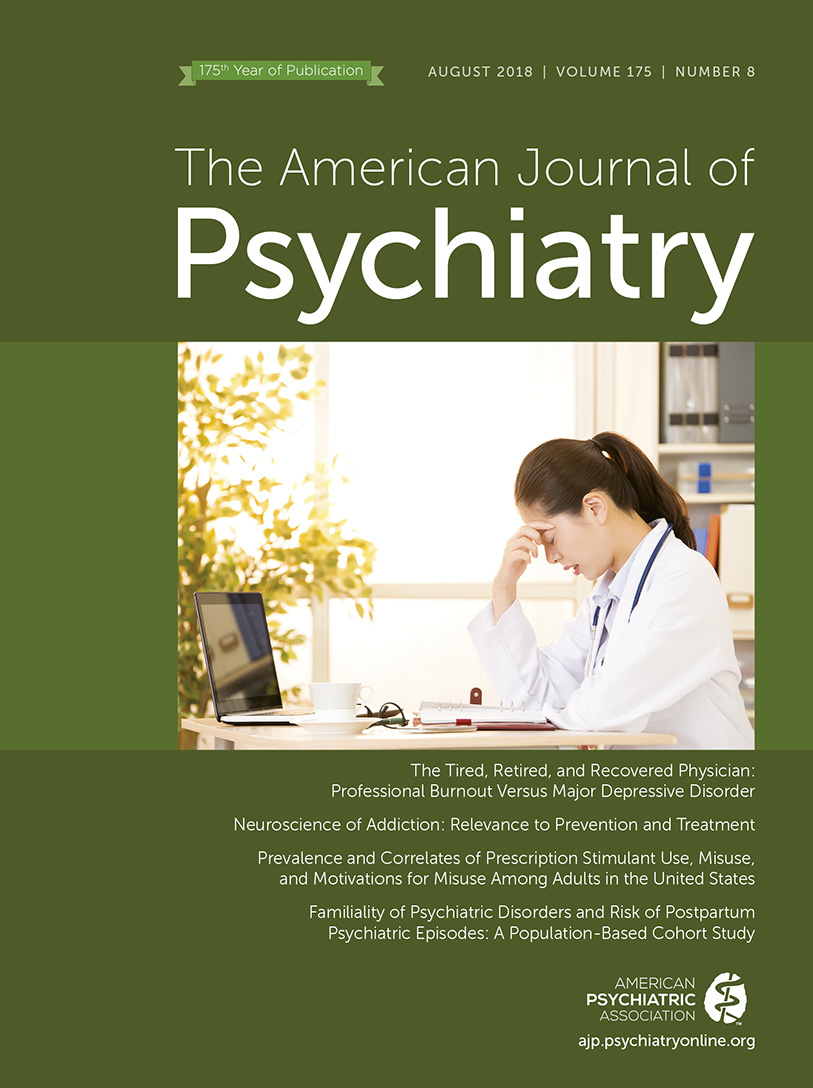Methylphenidate and Apathy in Alzheimer’s Disease: Is Sleep Apnea a Confounding Effect?
To the Editor: We read with interest the study by Padala et al. (1), published in the February 2018 issue of the Journal, examining the impact of methylphenidate on apathy in patients with Alzheimer’s disease. As noted by the authors, apathy is persistent and is associated with significant impairment in patients with Alzheimer’s disease. It is encouraging to see that methylphenidate may result in significant improvements in this patient population.
However, we posit that one possible explanation for the efficacy of methylphenidate in this group is the likelihood that a significant proportion of patients had obstructive sleep apnea. Obstructive sleep apnea is common in the elderly, with rates of >30% described in patients older than 70 years of age (2). Obstructive sleep apnea is associated with significant cognitive impairment and daytime sleepiness, which may present as apathy (3, 4). Obstructive sleep apnea has also been shown to be a risk factor for Alzheimer’s dementia (5). It is quite likely that in this sample of men with an average weight of 190 lb that a significant proportion had obstructive sleep apnea. This could have resulted in daytime sleepiness and neurocognitive effects that exacerbated their apathy.
Methylphenidate, a CNS stimulant, has been shown to improve sleepiness (6). In patients with untreated obstructive sleep apnea, the use of methylphenidate can increase alertness, which in turn could result in an improvement in apathy. This hypothesis might need further exploration, especially in light of the fact that methylphenidate resulted in a significant increase in systolic blood pressure in this study, and untreated obstructive sleep apnea can also result in hypertension (7).
1 : Methylphenidate for apathy in community-dwelling older veterans with mild Alzheimer’s disease: a double-blind, randomized, placebo-controlled trial. Am J Psychiatry 2018; 175:159–168Link, Google Scholar
2 : Sleep-disordered breathing in African-American elderly. Am J Respir Crit Care Med 1995; 152:1946–1949Crossref, Medline, Google Scholar
3 : Excessive daytime sleepiness in obstructive sleep apnea: prevalence, severity, and predictors. Sleep Med 2004; 5:339–343Crossref, Medline, Google Scholar
4 : Neurocognitive function in obstructive sleep apnoea: a meta-review. Respirology 2013; 18:61–70Crossref, Medline, Google Scholar
5 : Sleep-disordered breathing, hypoxia, and risk of mild cognitive impairment and dementia in older women. JAMA 2011; 306:613–619Medline, Google Scholar
6 : Methylphenidate hydrochloride for excessive daytime sleepiness in a patient with myotonic dystrophy. Psychiatry Clin Neurosci 2002; 56:271–272Crossref, Medline, Google Scholar
7 : Obstructive sleep apnea and hypertension: an update. Hypertension 2014; 63:203–209Crossref, Medline, Google Scholar



